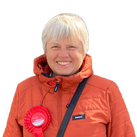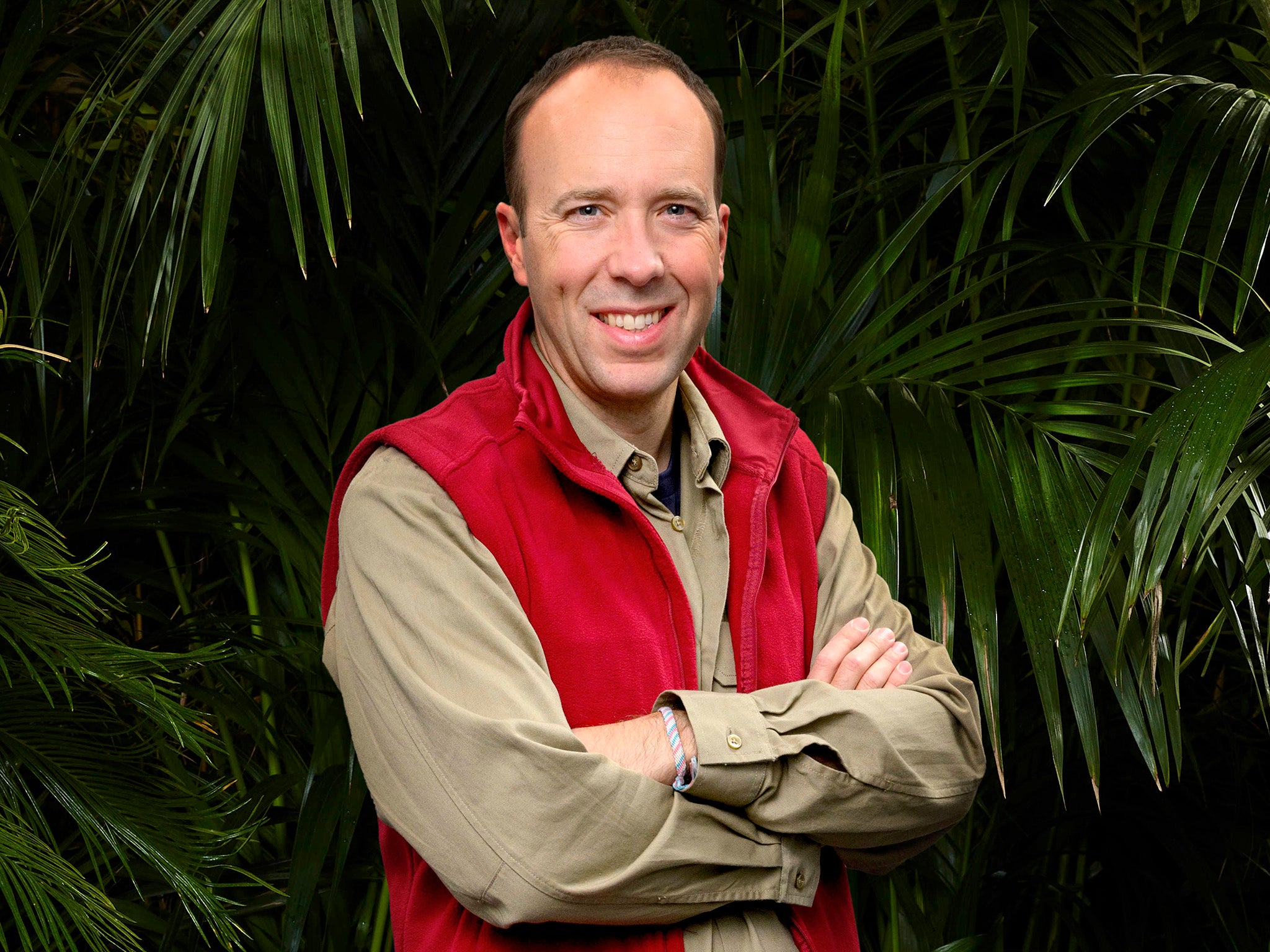Why I’ll never forgive Matt Hancock for what he did
My parents were moved to a temporary care home during the first Covid lockdown. They died less than two weeks later, writes Rosemary Dartnall


Your support helps us to tell the story
From reproductive rights to climate change to Big Tech, The Independent is on the ground when the story is developing. Whether it's investigating the financials of Elon Musk's pro-Trump PAC or producing our latest documentary, 'The A Word', which shines a light on the American women fighting for reproductive rights, we know how important it is to parse out the facts from the messaging.
At such a critical moment in US history, we need reporters on the ground. Your donation allows us to keep sending journalists to speak to both sides of the story.
The Independent is trusted by Americans across the entire political spectrum. And unlike many other quality news outlets, we choose not to lock Americans out of our reporting and analysis with paywalls. We believe quality journalism should be available to everyone, paid for by those who can afford it.
Your support makes all the difference.My parents, Bill and Mary Dartnall, lived in the bungalow we moved into when my sister and I had just started school, well into their old age. They were determined to live independently, and both were pragmatic, capable and organised.
Well into his seventies, Dad was a chimney sweep and known by all as a local character. Mum had been president of the British Beekeeping Association and they had both been very much involved with beekeeping for decades, locally and nationally. They worked hard throughout their lives and had a can-do approach that served them well.
At the start of 2020, they began to accept more help. Dad received short visits from carers – at 90 years old, he had begun to slow down. In February, Mum was prescribed high-dosage steroids for suspected arteritis, and on 28 February was admitted to hospital with steroid-induced psychosis.
Meanwhile, coronavirus was spreading through Europe. Dad was at home, isolating from 3 March, as instructed by the government. At that time, the carers visiting him had no PPE. I was driving to and from the hospital to visit Mum, taking Dad to see her and trying to sort out supermarket grocery deliveries, which were in high demand.
The first national lockdown began on 23 March. Mum was declared safe to go home, with home care help for the first couple of weeks. She arrived home on 25 March and all began to settle down, or so it seemed.
Just three days later, social services called to say the whole local authority home care team was being deployed on government instruction, to remove elderly patients from hospitals into care homes and all carers were being withdrawn from home support from 30 March.
The situation was stark, we were locked down, Mum and Dad were just coping and now the help they had was to be removed summarily. They had a choice, we were told: stay home without any help or move into a temporary care home, in a local Holiday Inn. My parents decided the temporary care home was the safest place to be.
On 30 March, Mum and Dad were hurried into a minibus to be taken into the care home, for an uncertain length of stay. The minibus, incredibly, collected other elderly folk, and despite having been directed to isolate at home for their own safety, those known to be particularly vulnerable to Covid-19 were travelling together. There were no masks worn.
They settled into their room at the Holiday Inn. It was small, Mum and Dad missed being at home and felt very disorientated, but the staff were delightful.
On Tuesday 6 April, Mum was rushed into hospital – she had been unresponsive, following a day of high temperature. Dad had the same. Care staff had checked on them through the night but they didn’t think my parents may have contracted Covid.
On arrival in hospital, Mum tested positive for Covid. She was taken to the Covid ward and put on oxygen. Dad was now alone in the small hotel room. It was hard to speak with him – he was rather deaf and sounded distressed, he couldn’t get to the phone before it rang out. He became increasingly unintelligible and the only way to speak to him was via the duty staff mobile. The care home staff were great throughout – caring and helpful, while no doubt under great pressure.
We spoke to the hospital staff repeatedly and were pleasantly surprised to be told by a doctor on 10 April – Good Friday – that Mum was doing well and would be released the next week. At this time, there was little news of elderly folk recovering from Covid.
Meanwhile, Dad’s speech was deteriorating and he was unable to walk. On the same day we were told Mum was doing well, Dad collapsed in his room. He managed to press the emergency button. He was taken by ambulance to hospital and after many hours being assessed, we were told he had had a massive stroke, was paralysed on the entire right side and had also tested positive for Covid. He was admitted to the same Covid ward as Mum.
Early on Easter Sunday, 12 April, I was told it was possible to speak to Mum – this was not previously allowed as she could not be taken off the oxygen. She sounded very poorly and was gasping for breath. Throughout the day, I learned that the ray of hope offered just two days before was a red herring – both Mum and Dad were gravely ill.
At 11.30am, the hospital called to say Mum’s vital signs were poor and we should expect bad news. We all spoke briefly again with her on the phone and she passed away at 12.30pm. Dad was told Mum had passed and sometime after, a doctor called to let us know that Dad had asked to have his oxygen mask removed. It was shocking to think of Dad, who never gave up on anything in his life, doing just that, but on the other hand, it was entirely consistent with Dad who always wanted Mum by his side, missed her dreadfully when she was in hospital and knew for sure that he didn’t want to be without her. Dad passed away just after 4pm.
My parents were cremated on 6 May 2020 – at a funeral without attendance.
The High Court ruling on 27 April this year told us the government acted unlawfully with regard to the removal of elderly people from hospitals into care homes. They did not assess the risks thoroughly.
To keep up to speed with all the latest opinions and comment, sign up to our free weekly Voices Dispatches newsletter by clicking here
It has perplexed me for months that individuals in this government have found displaying even the slightest humility completely beyond their capacity. Why not apologise for those who lost their lives? Why not say that they might have done things better, after the event?
For me, this displays a sort of arrogance and a lack of real care for others, when the priority is often to be seen as “world-beating”, or related to political gain. My parents, along with 20,000 others living in care homes, died in the early weeks of the pandemic. Their deaths were directly impacted by poor decision making.
Honesty, humility and respect for others is important in all walks of life, and the ruling came from the decency of one woman – Cathy Gardner. I heard her interviewed after the ruling and her words were a breath of fresh air. It seems to me she wanted to hear the truth about her late father’s death, nothing more, nothing less.
I remain convinced that my parents contracted Covid at the same time, as their symptoms began on the same day. This suggests Mum did not bring it home from hospital when discharged on 25 March. They could have caught it from an asymptomatic care worker visiting them at home, a day or two before they left for the care home, or on the journey with others to the care home or from a care worker in the home. Without PPE or testing, their lives were put at risk, and I lost them both.
Rosemary Dartnall is a Labour councillor for Bayston Hill, Column and Sutton in Shropshire
Join our commenting forum
Join thought-provoking conversations, follow other Independent readers and see their replies
Comments